第7章
It is far from the ambient of any of these imaginary lives tothat of the half-caste heroine of "A Japanese Nightingale" andthe young American whom she marries in one of those marriageswhich neither the Oriental nor the Occidental expects to lasttill death parts them.It is far, and all is very strange underthat remote sky; but what is true to humanity anywhere is trueeverywhere; and the story of Yuki and Bigelow, as the Japaneseauthor tells it in very choice English, is of as palpitantactuality as any which should treat of lovers next door.If Ihave ever read any record of young married love that was sofrank, so sweet, so pure, I do not remember it.Yet, Yuki,though she loves Bigelow, does not marry him because she loveshim, but because she wishes with the money he gives her to helpher brother through college in America.When this brother comesback to Japan--he is the touch of melodrama in the prettyidyl--he is maddened by an acquired Occidental sense of hissister's disgrace in her marriage, and falls into a fever anddies out of the story, which closes with the lasting happiness ofthe young wife and husband.There is enough incident, but of thekind that is characterized and does not characterize.The charm,the delight, the supreme interest is in the personality of Yuki.
Her father was an Englishman who had married her mother in thesame sort of marriage she makes herself; but he is true to hiswife till he dies, and possibly something of the Englishconstancy which is not always so evident as in his case qualifiesthe daughter's nature.Her mother was, of course, constant, andYuki, though an outcast from her own people--the conventions seento be as imperative in Tokyo as in Philadelphia--because of herhalf-caste origin, is justly Japanese in what makes herloveliest.There is a quite indescribable freshness in the artof this pretty novelette--it is hardly of the dimensions of anovel--which is like no other art except in the simplicity whichis native to the best art everywhere.Yuki herself is of asurpassing lovableness.Nothing but the irresistible charm ofthe American girl could, I should think keep the young men whoread Mrs. Watana's book from going out and marrying Japanesegirls.They are safe from this, however, for the reasonsuggested, and therefore it can be safely commended at least toyoung men intending fiction, as such a lesson in the art ofimitating nature as has not come under my hand for a long while.
It has its little defects, but its directness, and sincerity, andits felicity through the sparing touch make me unwilling to notethem.In fact, I have forgotten them.